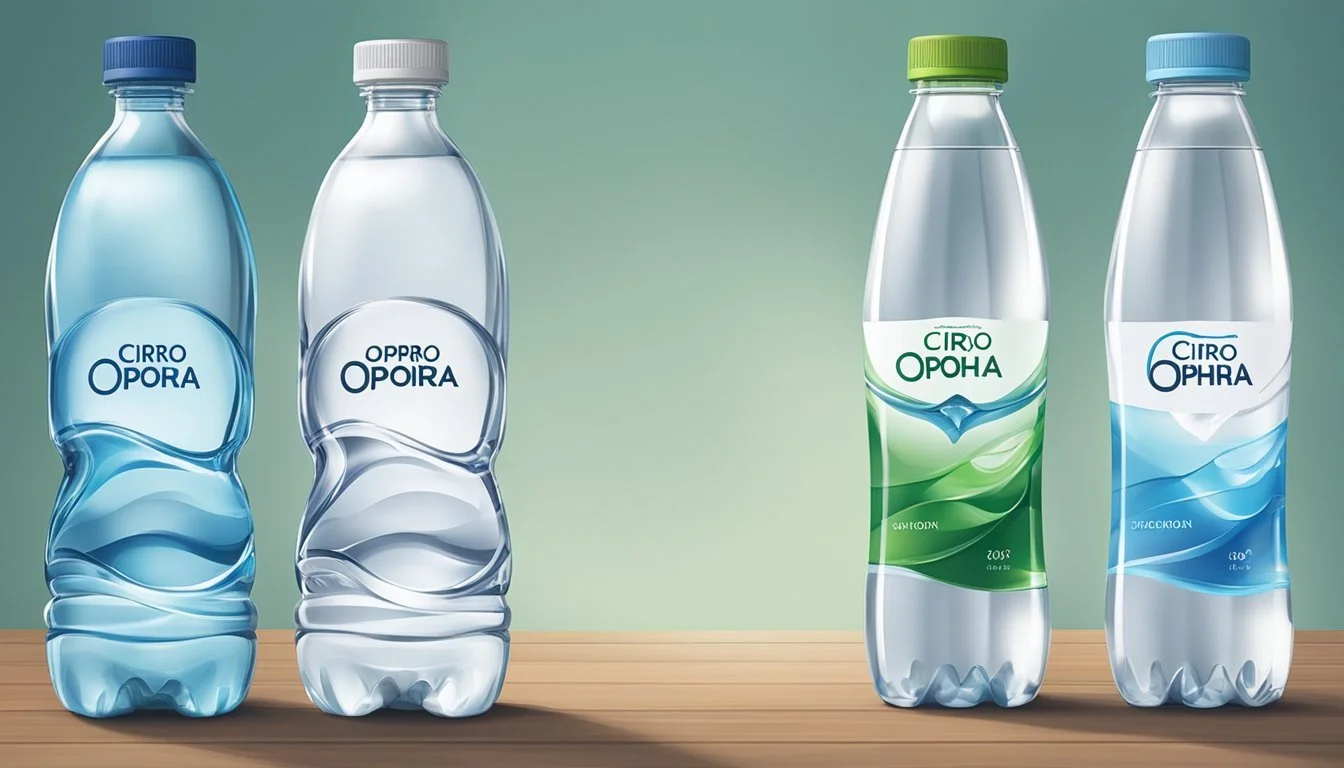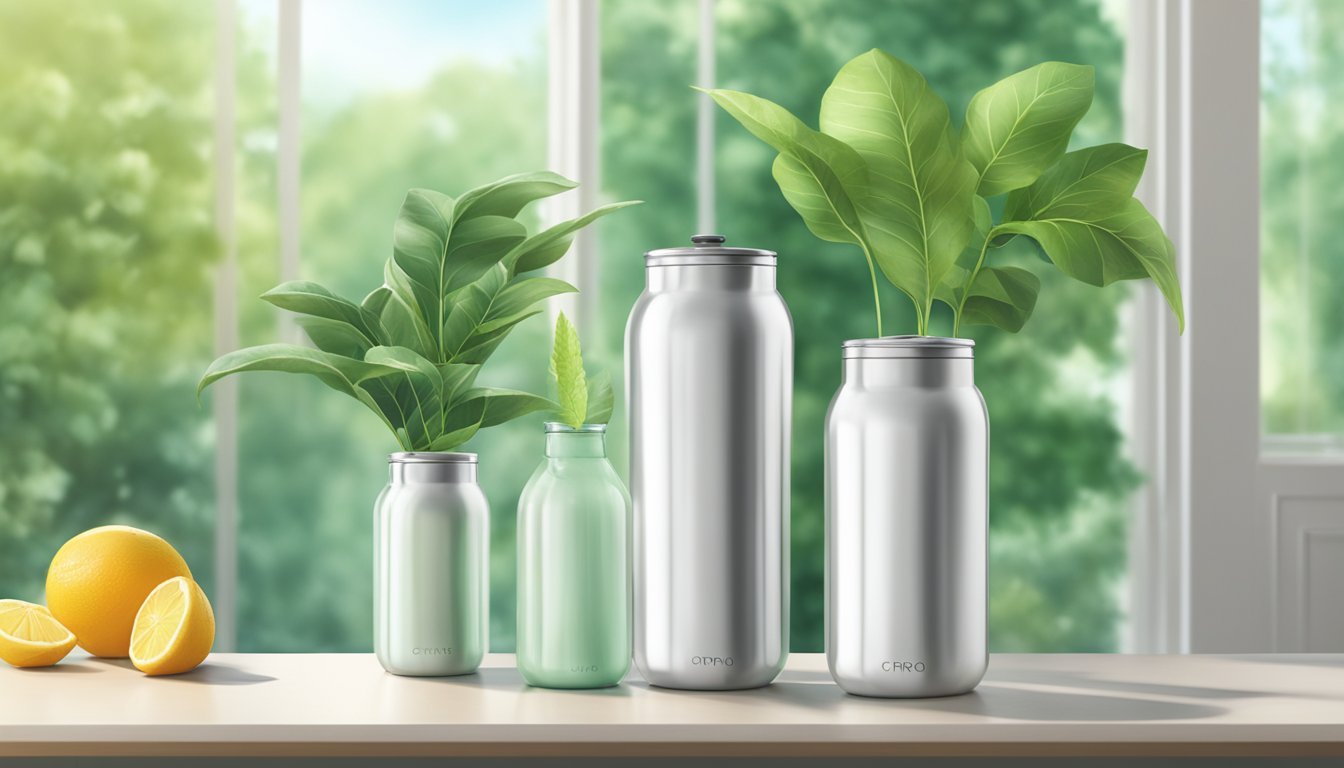Cirro vs. Ophora
A Comparison of Premium Bottled Waters
When it comes to bottled water, the choices can be overwhelming. Among the premium brands, Cirro and Ophora stand out, both boasting unique qualities and promising superior hydration. Consumers often find themselves torn between these two brands, each claiming distinct benefits.
Cirro offers a clean, crisp taste with no aftertaste, making it a favorite for those who prefer a straightforward water profile. On the other hand, Ophora is noted for its enriched mineral content, providing what some describe as a more robust and slightly mineral-heavy flavor. This choice often appeals to consumers looking for more than just hydration from their bottled water.
For health-conscious individuals, both brands have their merits. Cirro prides itself on purified water, ensuring a pure and simple hydration experience. Ophora, with its additional minerals, might cater to those seeking added nutrients in their drink. Choosing between Cirro and Ophora ultimately depends on personal preference for taste and desired health benefits.
Understanding Bottled Water
Bottled water is a popular choice for many due to its convenience and perceived purity. Various types, origins, and purification processes define the characteristics and benefits of different bottled waters.
Types of Bottled Water
Purified Water: Often sourced from municipal tap water, purified water undergoes extensive filtration processes like reverse osmosis to remove impurities. Brands like Cirro offer purified water that is devoid of contaminants and has a crisp taste.
Spring Water: This water is sourced from natural springs, which means it flows to the surface from an underground source. It retains minerals from its source, giving it a distinct taste. An example includes waters from Mountain Valley.
Mineral Water: Sourced from springs or groundwater, mineral water contains dissolved minerals like calcium, magnesium, and potassium. These electrolytes can be beneficial for hydration and overall health. Ophora’s mineralized water exemplifies this type.
Alkaline Water: This water has a higher pH level, typically above 7, which can neutralize acidity in the body. Alkaline water may also contain added minerals to achieve the increased pH.
Sparkling Water: Carbonated water can come from natural sources or be manually carbonated during bottling. It provides a fizzy texture that many find refreshing.
Water Source and Origin
The quality and taste of bottled water greatly depend on its source and origin.
Natural Spring Water: Sourced directly from natural springs, this type of water is often prized for its naturally occurring minerals and clean taste. The source is generally protected to preserve its purity.
Groundwater: Extracted from underground aquifers, this water can be rich in minerals and is often used for both spring and mineral water varieties.
Municipal Sources: Some purified waters start as municipal tap water but are treated extensively to remove contaminants and improve taste.
Bottled waters like Cirro often use municipal sources followed by rigorous purification processes. Meanwhile, brands like Ophora emphasize sourcing from pristine natural springs or deep, protected aquifers to ensure high quality.
Purification and Filtration Processes
Purification and filtration processes are crucial for ensuring bottled water's safety and quality.
Reverse Osmosis: This process forces water through a semipermeable membrane to remove minerals, chemicals, and impurities. It is a key step in producing purified water, offering consumers a taste free of contaminants.
Filtration Techniques: Various methods like carbon filtration, distillation, and UV light treatment are employed to remove particulates, bacteria, and chemical pollutants. These techniques ensure that the water is safe and clean for consumption.
Mineral Addition: In some purified and alkaline waters, minerals are added back to enhance flavor and provide health benefits. For instance, Hydro-7 is a proprietary process used by brands to ensure optimal mineral content and balance pH levels.
Oxygenation: Hyper-oxygenated water, like Ophora’s offering, includes additional oxygen to purportedly enhance hydration and improve overall wellness.
By understanding these processes and sources, consumers can make more informed choices about their bottled water preferences.
Health and Hydration
Both Cirro and Ophora offer benefits related to health and hydration due to their unique compositions and added minerals. Understanding which option leads to better hydration and overall wellness can guide consumers towards making an informed choice.
Hydration and Electrolyte Balance
Hydration is essential for maintaining bodily functions, and both Cirro and Ophora aim to provide superior hydration compared to tap water. Cirro is known for its balanced electrolyte content, including sodium and potassium, which help maintain the body's electrolyte balance. This is especially beneficial for athletes and those who engage in vigorous physical activities.
Ophora takes it a step further by including trace minerals and a higher pH level, which some believe enhances hydration efficiency. This high pH level can help reduce acidity in the body, potentially benefiting those prone to acid reflux or other acidity-related issues. The inclusion of minerals such as calcium and magnesium in Ophora's water can also support muscle function and prevent dehydration-related issues like muscle cramps.
Minerals and Water Quality
When evaluating water quality, the mineral content in both Cirro and Ophora is of significant interest. Cirro offers a straightforward composition, focusing on essential minerals without additives. This makes it a reliable choice for those looking to avoid artificial enhancements.
Ophora sets itself apart by infusing its bottled water with additional minerals aimed at boosting health benefits. This includes magnesium for bone health and calcium, which is essential for strong bones and teeth. The presence of these minerals not only improves hydration but also supports overall health.
Moreover, Ophora's higher pH levels contribute to a more balanced internal environment, helping to neutralize acid in the body. For individuals concerned with water quality, Ophora's multi-stage filtration process ensures that the water is free from contaminants, making it a superior choice for safe drinking water.
Brand Practices and Consumer Trust
When comparing Cirro and Ophora, understanding their brand practices and how they build consumer trust is crucial. This includes their transparency in sourcing and testing and their market presence and availability.
Transparency and Testing
Cirro and Ophora are committed to transparency regarding their water quality.
Cirro sources its water from protected springs and provides detailed reports on their website. These include test results for contaminants such as lead and PFAS. These reports ensure compliance with the Safe Drinking Water Act.
Ophora, on the other hand, markets its water as "ultra-purified". They utilize advanced filtration technologies and third-party testing to guarantee their product is free from harmful substances. Like Cirro, they also publish detailed testing results online.
Both brands highlight their commitment to safe drinking water through regular and rigorous testing. Consumers are more likely to trust brands that openly share such detailed information, ensuring the water they are drinking is safe and of high quality.
Market Presence and Availability
Cirro and Ophora have different approaches to market presence and availability.
Cirro water is widely available in many grocery stores across the country, making it a convenient choice for consumers. It's also well-marketed and often features in lists of the best bottled water.
Ophora, while not as widely available in physical stores, has a strong online presence. The brand leverages e-commerce platforms for distribution. It targets niche markets that prioritize purity and health, often selling through specialty retailers.
The availability of these brands impacts consumer trust differently. Cirro benefits from its broad market presence, reinforcing trust through frequent customer interactions. Ophora, by focusing on niche markets, builds trust through specialized product offerings and consistent quality.
Conclusion
When comparing Cirro and Ophora, several aspects are worth considering.
Hydration: Both Cirro and Ophora offer effective hydration. Cirro is known for its crisp taste without an aftertaste, appealing to consumers who prefer pure flavors. Ophora includes added minerals, potentially offering a more enriched hydration experience.
Health Benefits: Ophora adds beneficial minerals like calcium and magnesium. These can contribute positively to health. Cirro, on the other hand, relies on its purity without additional enhancements.
Environmental Impact: Consumers concerned with environmental impact might prefer Cirro. It often uses eco-friendly packaging. Ophora's commitment to sustainability should also be verified by looking at certifications and packaging practices.
Recommendations: For those seeking plain, refreshing water with minimal processing, Cirro is a solid choice. If additional minerals and a potential boost in health benefits are more appealing, Ophora stands out.
Consumers: Consumer preferences vary. Some prioritize taste, while others focus on supposed health benefits or environmental impact. Reviewing these factors closely ensures a choice that aligns with individual priorities.
This comparison highlights that both brands have their strengths depending on what the consumer values most.





